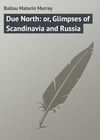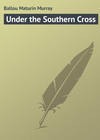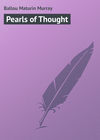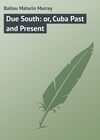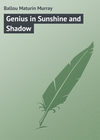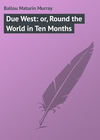Читать книгу: «Due North: or, Glimpses of Scandinavia and Russia», страница 19
CHAPTER XVIII
On the Road to Poland. – Extensive Grain-Fields. – Polish Peasantry. – A Russian General. – No Evidence of Oppression. – Warsaw and its Surroundings. – Mingled Squalor and Elegance. – Monuments of the City. – Polish Nobility. – Circassian Troops. – Polish Language. – The Jews of Warsaw. – Political Condition of Poland. – Public Parks. – The Famous Saxony Gardens. – Present Commercial Prosperity. – Local Sentiment. – Concerning Polish Ladies and Jewish Beauties
From Moscow to Warsaw one travels a long and rather dreary seven hundred miles, the first half of which is characterized by such sameness, verst after verst, as to render the journey extremely monotonous. The country through which we passed is heavily wooded, and affords some attractive sport to foreign hunters who resort hither for wolf-shooting. In the summer season these repulsive creatures are seldom dangerous to man, except when they go mad (which in fact they are rather liable to do), in which condition they rush through field and forest heedless of hunters, dogs, or aught else, biting every creature they meet; and such animals, man or beast, surely die of hydrophobia. The wolves are at all seasons more or less destructive to small domestic stock, and sometimes in the severity of a hard winter they will gather in large numbers and attack human beings under the craze of ravenous hunger. But as a rule they are timid, and keep out of the way of man. There are also some desirable game-birds in these forests which are sought for by sportsmen, but the wolves are all that the foreign hunter seeks. The wild bison still exist here, though it is forbidden to shoot them, as they are considered to belong to the Crown, but the gradual diminution of their numbers from natural causes threatens their extinction. If they were not fed by man during the long winters they would starve. The Emperor sometimes presents a specimen to foreign zoölogical gardens.
As we advanced, the country put on a different aspect. The beautiful lavender color of the flax-fields interspersed with the peach-bloom of broad, level acres of buckwheat produced a cheerful aspect. These fields were alternated by miles of intensely green oats, rye, and other cereals; indeed, we have seen no finer display of grain-fields except in western America. The hay-makers in picturesque groups were busy along the line of the railroad, nine tenths of them being women. The borders of Poland exhibited a scene of great fertility and successful agricultural enterprise. As we crossed the frontier a difference in the dress of the common people was at once obvious. Men no longer wore red shirts outside of their pantaloons, and the scarlet disappeared from the dress of the women, giving place to more subdued hues. The stolid square faces of the Russian peasantry were replaced by a more intelligent cast of features, while many representatives of the Jewish race began to appear, especially about the railroad stations, where they were sure to be offering something for sale. At the frontier town of Brest the extensive fortifications attracted notice, where considerable bodies of infantry and artillery were also observed. These elaborate fortifications are said to embrace a line of twenty miles, and are kept fully up to a war standard. As to the defensive condition of Russian forts, Alexander III. considers prevention better than cure, and is at all times prepared for an emergency. The dwelling-houses which began to come into view were of a much superior class to those left behind us in Russia proper. Log-cabins entirely disappeared and thatched roofs were rarely seen, while good substantial frame-houses appropriately painted became numerous. Neat little flower-plats were seen fenced in adjoining the dwellings, containing pretty shrubbery, flowers, and fruit-trees. Lines of bee-hives found place near the dwellings, and everything was suggestive of thrift and industry.
On the same train in which we had travelled from Moscow was Prince Gurkon, commander-in-chief of all the armies of Russia. He was a man past the middle age, with a countenance of pleasing expression, not wanting in firmness, but still quite genial. The Prince was almost covered on the left breast with the insignia of various orders. He was in full military uniform, attended by a staff of a dozen officers, and being on an official tour of inspection was received with a salvo of guns at Brest. He was inclined to conversation, and was not a little curious about America, concerning whose political and military status he had many questions to ask. Like all of his countrymen he expressed hearty sympathy with our Republic, and spoke intelligently of American history and progress. He had special respect for General Grant as a soldier, and remarked that fortunately Russia had disposed of the terrible incubus of serfdom at a less bitter and bloody cost than America incurred in the suppression of negro slavery.
After crossing the borders of Poland, the thoughtful stranger cannot divest himself of an earnest even though silent sympathy with the people who are so thoroughly disfranchised in a political sense; and yet truth compels us to say, that few if any outward signs of oppression met the eye. We must confess that a decided effort to discover something of the sort proved quite a failure. The masses of the people are cheerful and talkative in the extreme, exhibiting a strong contrast in this respect to those of Russia, who have a chronic expression of dreariness and inanity, and who, as a rule, are essentially silent and sad. With their national existence annihilated, so to speak, we had been led to anticipate discontent and grumbling among the Poles, neither of which we encountered. Warsaw is seemingly as thoughtless over these matters and as gay as any capital in Europe. As regards the nationality of Poland, her fate is certainly decided for many years to come, if indeed it be not settled for all time. And without prejudice or any false sentiment, one is forced to think perhaps this is best for Poland. Dismembered as she is, every new generation must amalgamate her more and more completely with the three powers who have appropriated her territory and divided the control of her people among them. We continue to speak of Poland as a distinct country, though the name is all that remains of its ancient independence. The map of Europe has long since been reconstructed in this region, – Austria, Germany, and Russia coolly absorbing the six millions of Poles, and Warsaw being the capital of Russian Poland.
It was at the close of the second day's journey since leaving Moscow that we approached Warsaw in a course nearly due west, witnessing one of those fiery sunsets which are only seen in their intensity towards the close of summer in the north. The gorgeous light escorted us into the capital across the long and lofty iron bridge which stretches from the Praga suburb over the broad, sandy bed of the Vistula. This remarkable bridge is one thousand nine hundred feet in length, and was designed by the same architect that superintended the construction of the Nicholas Bridge at St. Petersburg. The curtain of night fell in sombre folds as we drove through the streets of the old city amid a blaze of artificial light, the town being gayly illumined on account of its being the birthday of Alexander III. It was observed that this illumination was in some respects peculiar, long rows of gas-jets, extending by means of temporary pipes along the gutters by the sidewalks, supplementing the blaze in the windows of stores and dwelling-houses, so that one seemed to be passing between two narrow streams of liquid fire. It is a long drive from the railroad station to the Hotel Victoria, but when it is once reached, the traveller finds himself located in the centre of Warsaw and in very comfortable quarters.
The city extends about six miles along the left bank of the Vistula and upon high land. The river – which is navigable, though at the time of our visit it was very low – extends the whole length of Poland from north to south, its source being in the Carpathians and its mouth at Dantzic. The city, which covers a great surface in proportion to the number of its inhabitants, is enclosed by ramparts pierced by ten gates, and is defended by a castle of modern construction. The fortification is well kept up to a war-standard, especially in the department of modern artillery. The garrison was drilling at the time of our visit in the management of some new and heavy guns. Warsaw has nearly half a million of inhabitants, one third of whom are Jews, who monopolize the main branches of trade, and who appear in an exaggerated aspect of their repulsive peculiarities. There is but one synagogue worthy of mention belonging to this people, who certainly would require more were they composed of a race adhering strictly to their religious professions. The temple referred to is an extremely plain, unpretentious one, which is capable of accommodating twelve or fifteen hundred persons, and is generally visited by strangers in the city. The prevailing religion in Poland is Roman Catholic, and doubtless much of the bitterness of feeling which exists between this people and the Russians is caused by religious differences, fomented by the Catholic priests.
On arriving in a new city, an experienced traveller will instinctively seek some suitable point from which to obtain a clear and comprehensive view of the entire locality, which will thus become mapped upon the brain, so that all after movements are prosecuted with a degree of intelligence otherwise impossible. Here the St. Petersburg railway station in the Praga district affords the desired view. From hence a vast panorama spreads out before the eye in every direction. On the banks of the Vistula opposite may be seen the citadel, the older portions of the town, with its narrow streets and lofty houses, the castle and its beautiful gardens, as well as the newer sections of the city, including the public promenades and groves about the royal villa of Lazienki. Viewed from Praga as it slopes upward, the effect of the city is very pleasing, and a closer examination of its churches, former palaces, and fine public buildings confirms the favorable impression of its architectural grandeur. This view should be supplemented by one of a bird's-eye character to be obtained from the cupola of the Lutheran Church, which will more clearly reveal the several large squares and main arteries, bordered by graceful lime-trees, thus completing a knowledge of its topography.
In spite of its misfortunes, Warsaw ranks to-day as the third city in importance as well as in population in the Russian empire. It was not made the capital of Poland until 1566, when it succeeded to Cracow. It is now but the residence of a viceroy representing the Emperor of Russia. The town is heavily garrisoned by the soldiers of the Tzar; indeed, they are seen in goodly numbers in every town and village of any importance, and are represented even at the small railroad stations on the line from Moscow. War and devastation have deprived the city of many of its national and patriotic monuments, but its squares are still ornamented with numerous admirable statues, and with a grand array of fine public buildings. In the square of the Royal Castle there was observed a colossal bronze statue of Sigismund III.; in another quarter a bronze statue of Copernicus was found. It will be remembered that he was a Pole by birth and was educated at Cracow, his name being Latinized from Kopernik. There is a thirteenth-century cathedral close by, whose pure Gothic contrasts strongly with the Tartar style so lately left behind in middle Russia. This old church was very gray and crumbling, very dirty, and very offensive to the sense of smell, – partly accounted for by obvious causes, since about the doors, both inside and out, swarmed a vile-smelling horde of ragged men, women, and children, sad and pitiful to look upon. The square close at hand has more than once been the scene of popular demonstrations which have baptized it in the life-blood of the citizens. The finest public buildings and elegant residences were found strangely mingled with wooden hovels; magnificence and squalor are located side by side, inexorably jumbled together. We remember no other city in all Europe which has so many private palaces and patrician mansions as may be seen in an hour's stroll about Warsaw; but it must be admitted that the architecture is often gaudy and meretricious. Here for centuries there were but two grades of society; namely, the nobles and the peasants. Intermediate class there was none. A Polish noble was by law a person who possessed a freehold estate, and who could prove his descent from ancestors formerly possessing a freehold, who followed no trade or commerce, and who was at liberty to choose his own habitation. This description, therefore, included all persons who were above the rank of burghers or peasants. The despised Jews were never considered in the social scale at all, and were looked upon by both nobles and peasants as a necessary evil contingent upon trade. They were not even subject to military service until the Russians assumed power. Now the Jews enter in large numbers into the service of the Tzar, especially as musicians forming the military bands. Being intelligent and to a certain degree educated, they are also employed in places where recruits only fit for service in the lower ranks would not be trusted, and we were told that they make excellent common soldiers.
Where the great iron bridge which spans the Vistula joins the shore on the right bank, one comes upon the barracks of the Circassian troops who form a portion of the local garrison. Here we chanced to witness some of their peculiar cavalry drill, where, among other manøuvres, the exercise of dashing towards an object placed upon the ground and catching it up on the point of the sword or lance while the rider is at full speed, was practised. These soldiers are most efficient as cavalry, being what is termed born horsemen. Russians, Circassians, and other Eastern troops garrison Warsaw, while Polish soldiers are sent elsewhere for good and sufficient political reasons. The support of the entire scheme of power in Russia, as in Germany and Austria, turns upon military organization and efficiency; hence this element crops out everywhere, and its ramifications permeate all classes in Warsaw, as at St. Petersburg or Berlin.
In passing through Poland the country presents to the eye of the traveller almost one unbroken plain, admirably adapted to agriculture, so much so that it has long been called the granary of Europe. The Polish peasants are extremely ignorant, if possible even more so than the same class in Russia proper; but they are a fine-looking race, strongly built, tall, active, and well-formed. There are schools in the various districts, but the Polish language is forbidden to be taught in them; only the Russian tongue is permitted. The peasantry have pride enough to resist this in the only way which is open to them; namely, by keeping their children from attending the schools. Therefore, education not being compulsory, as it is in Norway and Sweden, little benefit is derived from the common-school system as here sustained. With a view utterly to abolish the Polish language, it is even made a penal offence to use it in commercial transactions.
The Polish peasantry as a whole are by no means a prepossessing race. Naturally dull, they are still more demoralized and degraded by an unconquerable love of intoxicants, the dram being unfortunately both cheap and potent. In every village and settlement, no matter how small, there are always Jews who are ready and eager to administer to this base appetite, and to rob the poor ignorant people of both health and money. It is unpleasant to speak harshly of the Jewish race, especially as we know personally some highly cultured, responsible, and eminently respectable men who form a decided exception to the general rule; but the despised and wandering children of Israel, wherever we have met them, certainly appear to exercise an evil influence upon the people among whom they dwell. We record the fact with some hesitation, but with a strong sense of conviction. Poland appears to be after Palestine a sort of Land of Promise to the Jews; but they are certainly here, if nowhere else, a terrible scourge upon the native race. Their special part of the town – the Jews' Quarter – is a mass of filth, so disgusting, so ill-smelling, that one would think it must surely breed all sorts of contagious diseases; but here they live on in unwholesome dens, amid undrained, narrow streets and lanes, often in almost roofless tenements. Bayard Taylor wrote of the Polish Jews: "A more vile and filthy race, except the Chinese, cannot disgust the traveller." Here, as in other parts of the world, the Hebrew people have a history full of vicissitudes, and are composed of various tribes, Galician, Moldavian, Hungarian, and native Polish; but in their general characteristics they are identical, being universally wedded to filth and greed. While they are strangely interesting as a study they are never attractive, with their cringing, servile manners and dirty gabardines, their cadaverous faces, piercing black eyes, their hooked noses and ringleted locks. Wherever met they are keen-witted, avaricious, patient, frugal, long-suffering. The race is now banished from what is known as Great Russia, and so far as Government is concerned is barely tolerated in Russian Poland; but to drive them hence would be to decimate the country in population.
The present political condition of Poland is the more impressive, as we remember that she was a great civil power when Russia was little better than semi-barbarous. Now neither books nor papers are permitted to be published in the native tongue, and all volumes printed in the Polish language are confiscated wherever found, even in private libraries. The public library of Warsaw, which contained some hundred and sixty thousand bound volumes, was conveyed to St. Petersburg long ago, and Polish literature may virtually be said to be suppressed. While becoming conversant with these facts, it was natural as an American that we should speak plainly of the outrageous character of such arbitrary rule. The intelligent and courteous Russian with whom we were conversing could not see why it was any worse for his Government to claim possession and direction of Poland than it was for England to do the same in the instance of Ireland. This was a style of arguing which it was not very easy to meet. "It became a political necessity for us to take our portion of Poland and to govern it," said the gentleman to whom we refer, "but she is far more of a burden than an advantage to Russia. Only the common people of this country – the masses – have been really benefited by the present state of affairs."
The "Avenues" is the popular drive and promenade of the citizens of Warsaw, bordered by long lines of trees and surrounded on all sides by elegant private residences. Here also are located inviting public gardens where popular entertainments are presented, and where cafés dispense ices, favorite drinks, and refreshments of all sorts. The well-arranged Botanical Gardens are not far away, affording a very pleasing resort for all lovers of floral beauty. Just beyond these gardens comes the Lazienki Park, containing the suburban palace built by King Stanislaus Poniatowski in the middle of the last century, and which is now the temporary residence of the Emperor of Russia when he visits Warsaw. The grounds occupied by the Park are very spacious, affording great seclusion and deep shady drives; for though it so closely adjoins the city, it has the effect of a wild forest composed of ancient trees. The royal villa stands in the midst of a stately grove, surrounded by graceful fountains, tiny lakes, and delightful flower gardens. There is a fine array in summer of tropical plants in tubs and many groups of marble statuary, more remarkable for extravagance of design than for artistic excellence, if we except the statue of King John Sobieski. Adjoining the Park is that of the Belvidere Palace, formerly the residence of the Grand Duke Constantine; but the place is now quite deserted, though everything is kept in exquisite order.
Most of the city houses are built of brick or stone, the former being stuccoed so as to give the general effect of the latter. The churches are numerous and fine. It may be said, indeed, that the public buildings throughout the city are on a grand scale. The two principal streets are Honey Street and that of the New World, so called. There are a plenty of hotels, but mostly of a very inferior character, several being kept in what were once palaces, generally by Germans or some other foreigners, never by Poles. The people whom one meets upon the streets seem to be more Asiatic in their features and general aspect than the residents of St. Petersburg, showing clearly their Tartar descent; but in manners, customs, and dress they are much more European than the Russians.
There are several large open squares in Warsaw where provision markets are held daily by the country people, but especially in the early morning and forenoon. The principal one is located near the Saxony Gardens, the trade of which is entirely conducted by women; and so varied is the business here that it partakes of the character of a public fair rather than that of a provision market. Vegetables, flowers, fruit, fish, poultry, tools, clothing, toys, domestic utensils, boots, shoes, and articles of female attire, all enter into the objects collected and offered for sale. The women are mostly of Jewish extraction, a large number of the middle-aged wearing wigs, under which their natural hair was cut short. On inquiry it was found that this is an old Jewish custom with women of that race in Poland, – that is, as soon as they are married to shave their heads and wear false hair, a practice which we have never observed elsewhere, and which is not followed here by the more pretentious families of the Hebrew population. The market square adjoining the Saxony Gardens affords a highly picturesque sight, where the mingling of colors, races, and costumes is curious to study. In the gardens we have one of the most attractive and oldest city parks in Europe, where the trees are very large and of great variety, while the flowers which adorn the grounds on all sides, mingled with artificial ponds and fountains, delight the eye and regale the senses. We have all heard of the Saxony Gardens of Warsaw, but we have never heard them overpraised. A military band performs here night and morning during the summer season, while mineral waters – a specialty here – are freely drunk by the promenaders, recalling familiar scenes at Saratoga.
The city to the practical eye of an American seemed to be commercially in a state of more rapid growth and prosperity than any capital which has been treated of in these pages. In matters of current business and industrial affairs it appeared far in advance of St. Petersburg. The large number of distilleries and breweries was unpleasantly suggestive of the intemperate habits of the people. The political division of Poland which we have incidentally spoken of was undoubtedly a great outrage on the part of the three powers who confiscated her territory, but the author is satisfied, while writing here upon the spot, and after careful consideration, that this radical change was a good thing for the people at large. With what has seemed to be the bitter fortune of Poland we have all of us in America been taught from childhood to sympathize to such an extent that romance and sentiment have in a degree prevailed over fact, blinding cooler judgment. There are those who see in the fate of Poland that retributive justice which Heaven accords to nations as well as to individuals. In past ages she has been a country always savagely aggressive upon her neighbors, and it was not until she was sadly torn and weakened by internal dissensions that Catherine II. first invaded her territory. Nine tenths of the population were no better than slaves. They were in much the same condition as the serfs of Russia before the late emancipation took place. They were acknowledged retainers, owing their service to and holding their farms at the option of the upper class; namely, the so-called nobility of the country. This overmastering class prided itself upon neither promoting nor being engaged in any kind of business; indeed, this uselessness was one of the conditions attached to its patent of nobility. These autocratic rulers knew no other interest or occupation than that of the sword. War and devastation constituted their profession, while the common people for ages reaped the fruit of famine and slaughter. Even in what were called days of peace, the court and the nobles spent their time in vile intrigues and bloody quarrels. However hard these reflections may seem, they are fully sustained by the history of the country, and are frankly admitted to be true by intelligent natives of Warsaw to-day.
There is no denying the fact, leaving the question of right and justice quite out of the discussion, that the breaking up of Poland politically has brought about a degree of peace, wealth, prosperity, and comparative liberty such as the masses of the people of this so long distracted land have not known for centuries. That there is shameful despotism exercised by the ruling powers all must admit; but there is also peace, individual liberty, and great commercial prosperity. In the days which are popularly denominated those of Polish independence, the nobility were always divided into bitter factions. Revolutions were as frequent as they are in Spain, Mexico, or South America to-day, the strongest party for the time being disposing of the crown and ruling the country amid tumult and bloodshed.
"The class who so long misruled Poland are now powerless," said a native resident of Warsaw to us. "The sacrifice of our political nationality has been indeed a bitter experience; but it has at least given the country a breathing spell, and the rank and file of the people a chance to recuperate their fallen fortunes. We had become impoverished by internal dissensions and endless conflicts abroad; now we enjoy peace and material prosperity. If the matter depended upon a popular vote as exercised in America," he added, "there would be found only a designing few who would vote for a restoration of the old régime." The gentleman whom we have quoted belonged to the mercantile class, and was native born; therefore we think his words may be taken as reflecting the average sentiment of the citizens of Warsaw.
Let us not forget in these closing pages to speak of the Polish ladies. They are almost universally handsome, with large expressive eyes, dark and deep as the Norwegian fjords, lighting up faces full of tenderness and sympathy. They are generally more accomplished in what is considered womanly culture among the better classes than are the ladies of Southern Europe, being almost universally good musicians and fine vocalists, as well as possessing a natural gift of languages. In secret these daughters of Poland are extremely patriotic, though the public expression of such sentiments is hardly admissible under the circumstances. It is not surprising that they should regret the loss of a condition of society which made them all princesses, so to speak. The representatives of this class are little seen in public, very many having removed to Paris, where they constitute a large and permanent colony. When encountered here, they are vehemently earnest as to patriotism, and ready to encourage any extravagant measure looking towards a possible restitution of Polish nationality.
A fellow traveller between Warsaw and Vienna, in responding to a casual remark touching the extraordinary beauty of the Polish ladies, – "ladies whose bright eyes rain influence," – told the author of a gallant friend's experience with the gentler sex of several nationalities. It seems that the person referred to lost his heart in Germany, his soul in France, his understanding in Italy, and was made bankrupt of his senses in Poland. When his affections were thus reduced to a complete wreck, the gentleman settled down to matrimonial felicity in Russia! Some of the Jewish women of Warsaw, of the wealthier class, are extremely handsome, so marked in this respect that it was a pleasure to look at them. Many of the race are blondes of the most decided stamp. Unlike Parisian, London, or Vienna beauties, their charms are all quite natural. They require no rouge to heighten the color of their glowing complexions, no shading of the eyes, no dyeing of the hair, no falsifying of the figure, no padding. These Jewesses are beholden to Nature alone for their charms of person.
The Polish language as spoken by the people of Warsaw is indeed a puzzle to a stranger, being a sort of Slavic-Indo-European tongue. When Poland enjoyed a distinctive nationality, no less than six different dialects were spoken in the several provinces of the kingdom. There is so much similarity, however, between the Polish language proper and the Russian tongue that the people of the two nationalities easily understand each other, and on the borders there is a singular conglomerate of the two tongues spoken by the peasantry. Until towards the close of the eighteenth century, the Polish historians wrote almost exclusively in the Latin language, and her poets also expressed themselves in that classic medium; hence the paucity of Polish literature. As already intimated, the German and Russian languages are spreading over the country, and will eventually obliterate the native tongue without the enforcement of arbitrary measures on the part of the dominant powers.
Покупайте книги и получайте бонусы в Литрес, Читай-городе и Буквоеде.
Участвовать в бонусной программе
